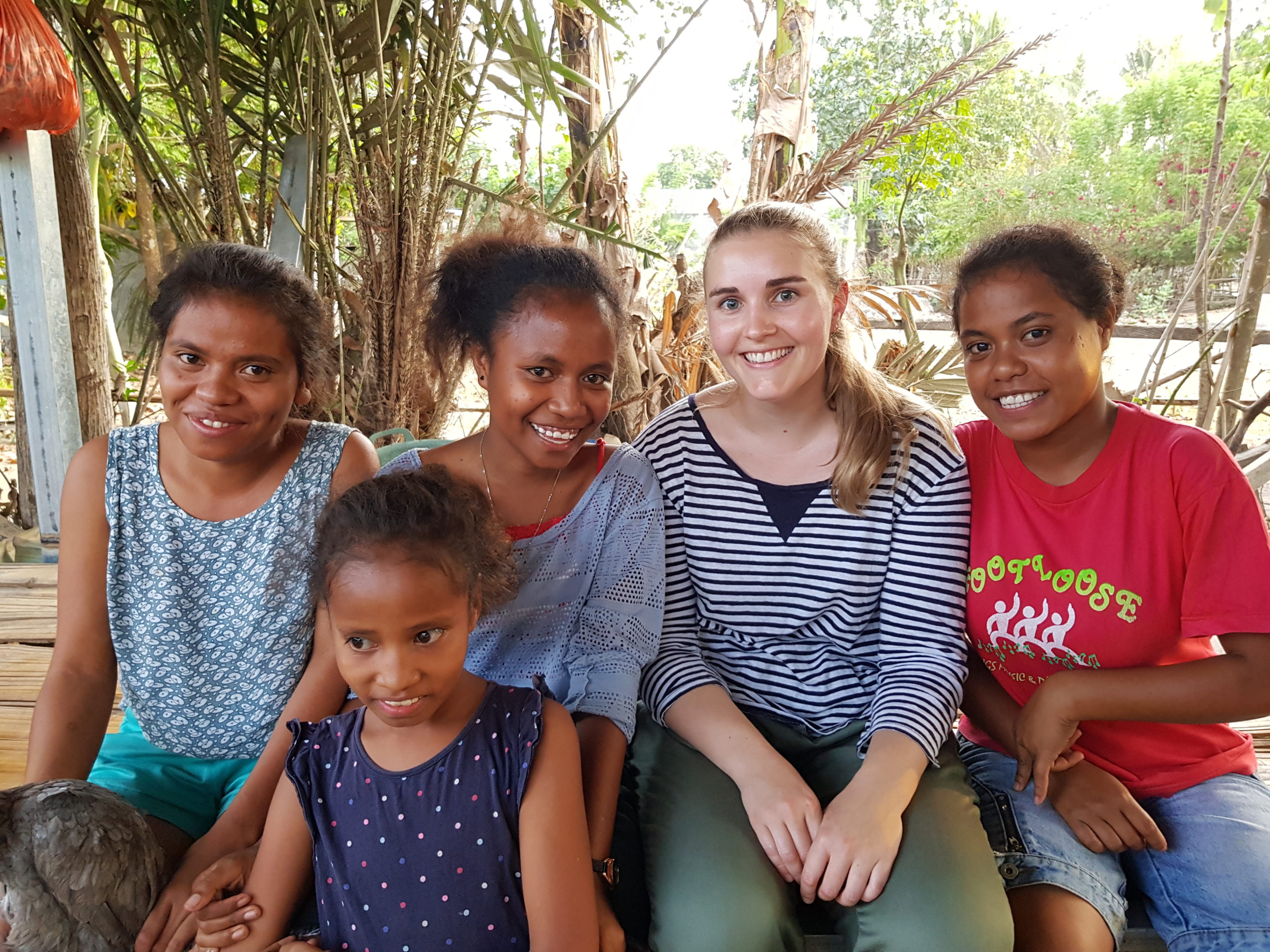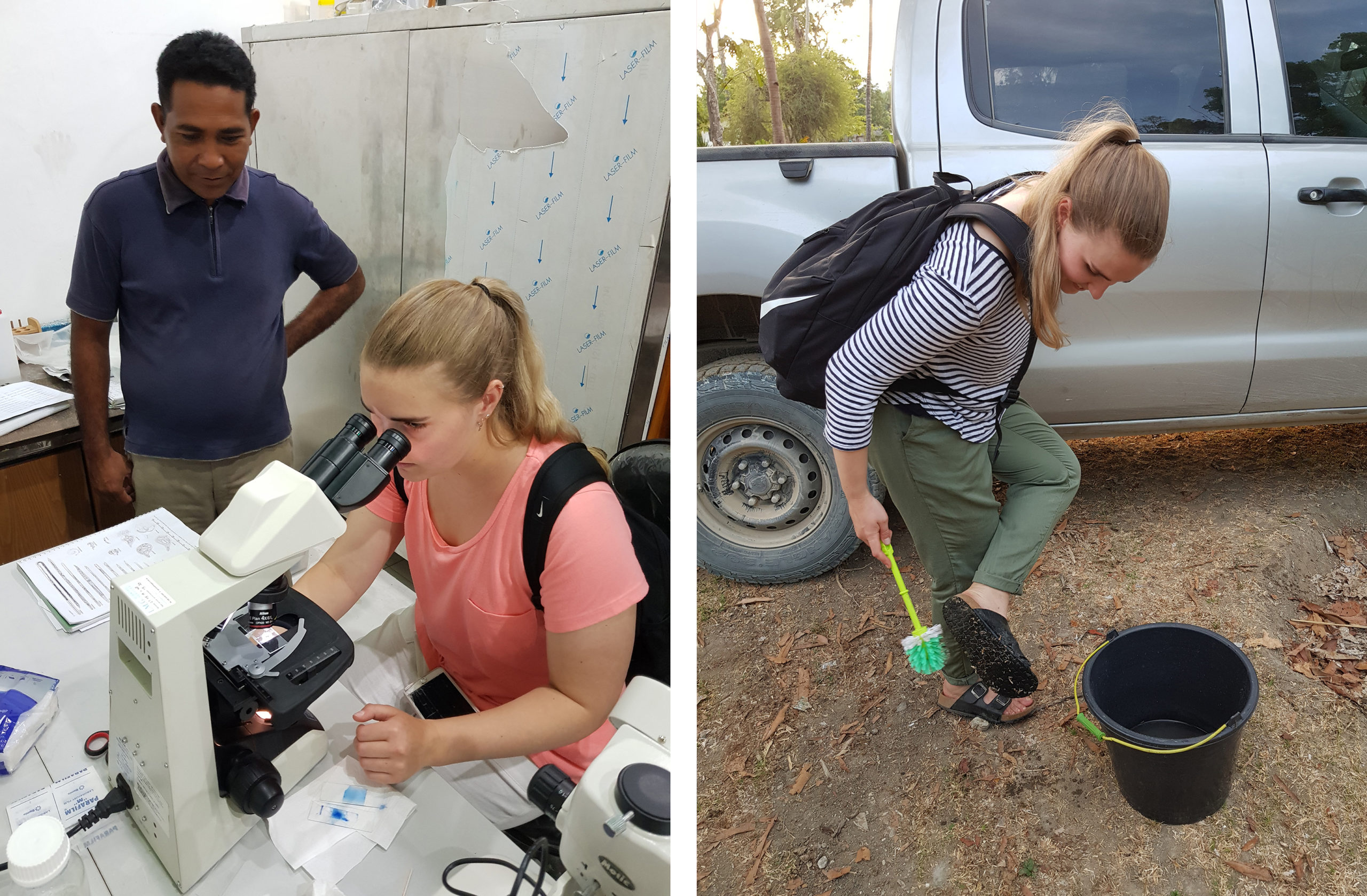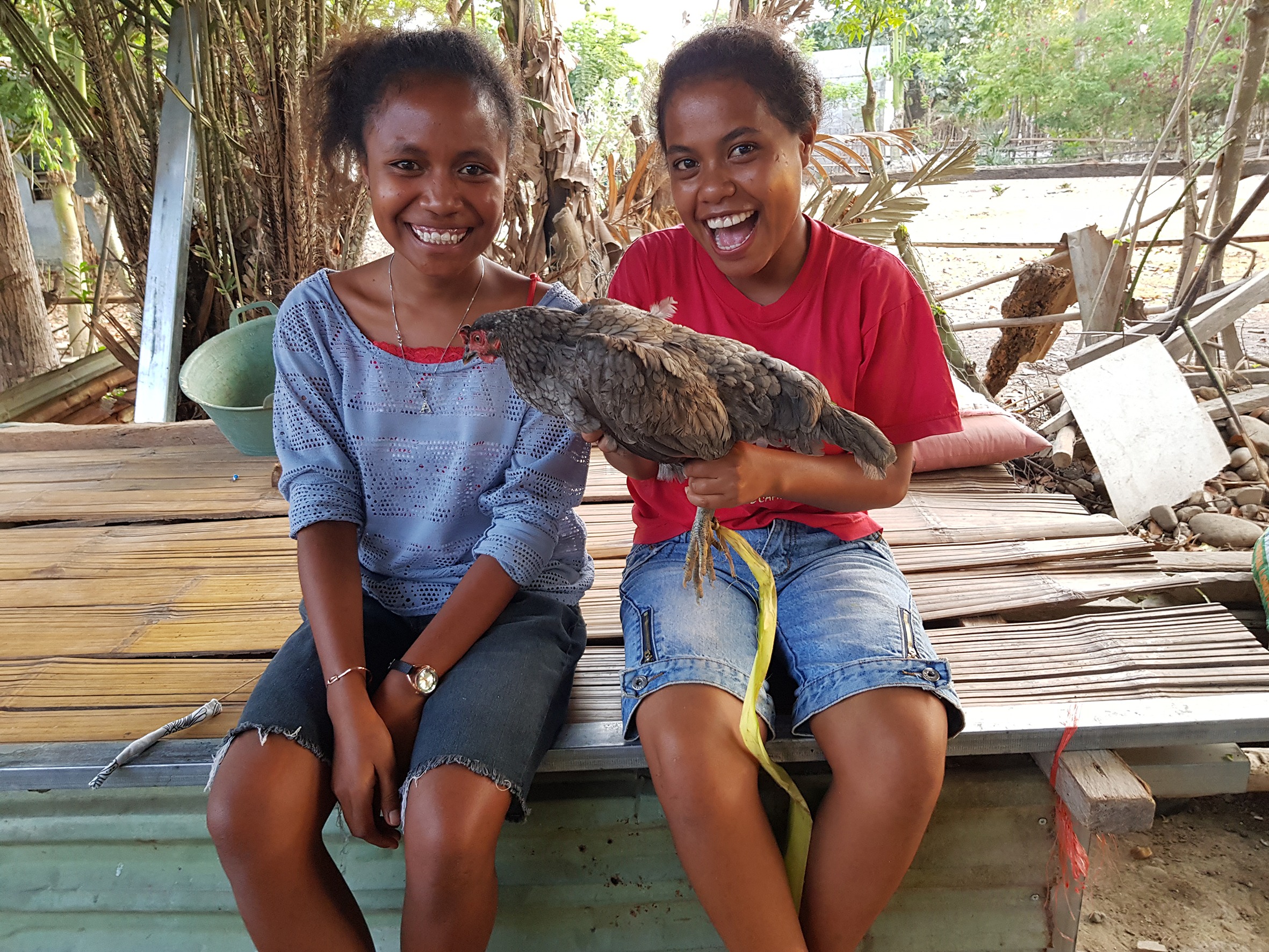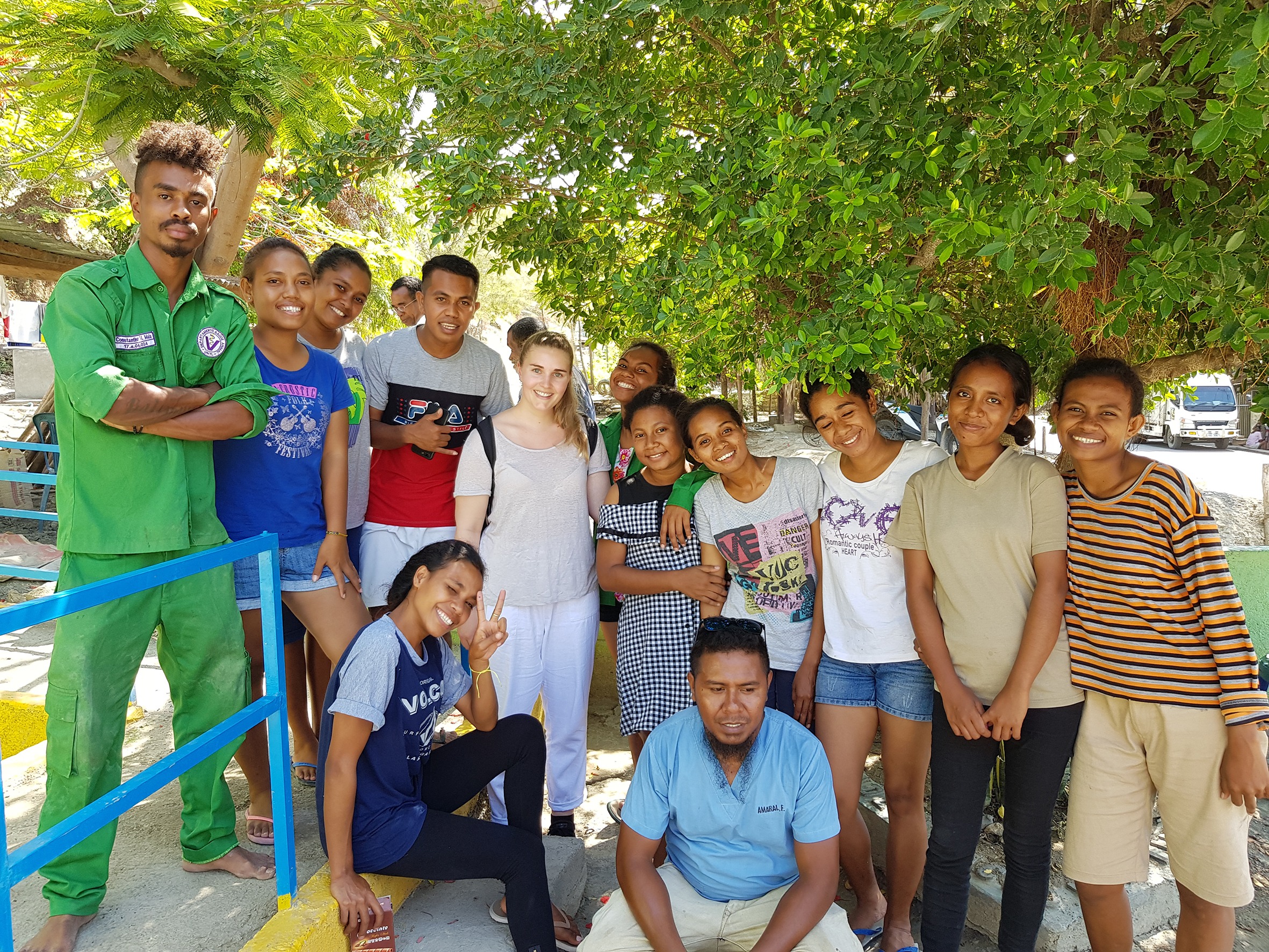

Further plans for mentoring program in Timor-Leste
March 3, 2020
Late in 2019, supported by the NSW Crawford Fund Committee, Dr Robyn Alders made a further visit to Timor-Leste to work with partners on the ground and lay the groundwork for future work on improving maternal and child nutrition through agriculture. She was accompanied by the Crawford Fund Tasmanian Committee Student Awardee, Anna Mackintosh. Discussions were also held around opportunities for volunteer placements, an important component of our mentoring and NextGen programs.
Robyn is leading our mentoring program in Timor-Leste and is well known to the Crawford Fund family as a Crawford Fund medal winner, and to the international community for her life-long dedication to improving food and nutrition security.

“Our modern food systems have delivered the double burden of under and over-nutrition. The human and financial costs associated with this situation are staggering and place huge strain on national budgets that are already stretched. At the same time, support for agricultural research and development have declined markedly,” reported Robyn, who carried out earlier research in Timor Leste on a visit back in 2015, also supported by the NSW Committee.
“Nutrition-sensitive agriculture and value chains are currently under discussion in the international development arena in relation to food security and human health, especially maternal and child nutrition. The approach provides a framework for an interdisciplinary discussion around all aspects of food and nutrition security from soils, food production to market chains, to consumers, food wastage, human physiology and social and cultural issues.”

During their visit, Robyn and Anna met with Abel Ximenes, Head of the laboratory at the National Plant Quarantine Laboratory, to discuss volunteer placements in 2020. They also met with Sr Jose (Quico) da Silva, the National Director of Australian Volunteers International, to talk further about volunteer support for Ministry of Agriculture and Fisheries (MAF).
They attended meetings with the Australian Embassy Food Security and Rural Development Representatives, Tomak (Farming for Prosperity) personnel, the Food and Agriculture Organisation of the UN, the World Health Organisation, Alola Foundation and Catholic Relief Services.
Robyn reported that the ten-day visit yielded a number of important findings and contributed to some useful outcomes leading up to the planned training this year.
In particular, she noted that the arrival of African Swine Fever (ASF) in Timor-Leste is causing considerable distress at both household and government levels. In cultural and food security terms, the negative impact is significant.

“Opportunities to increase the sustainable control of vaccine-preventable animal diseases are urgently required. Extremely low levels of animal-source food consumption in Timor-Leste is a major contributor to poor growth and undernutrition in young children. Animal disease prevention and control is vital to improve livestock-raising household income and food security. In many countries where government agricultural budgets are under pressure, animal health services are unable to implement their preferred disease control programs. Developing cost-sharing and partnership strategies that support the timely importation of vaccines, robust cold chains and distribution and administration to all interested farmers requires a facilitating policy environment and matching implementation plans.”





 0
0